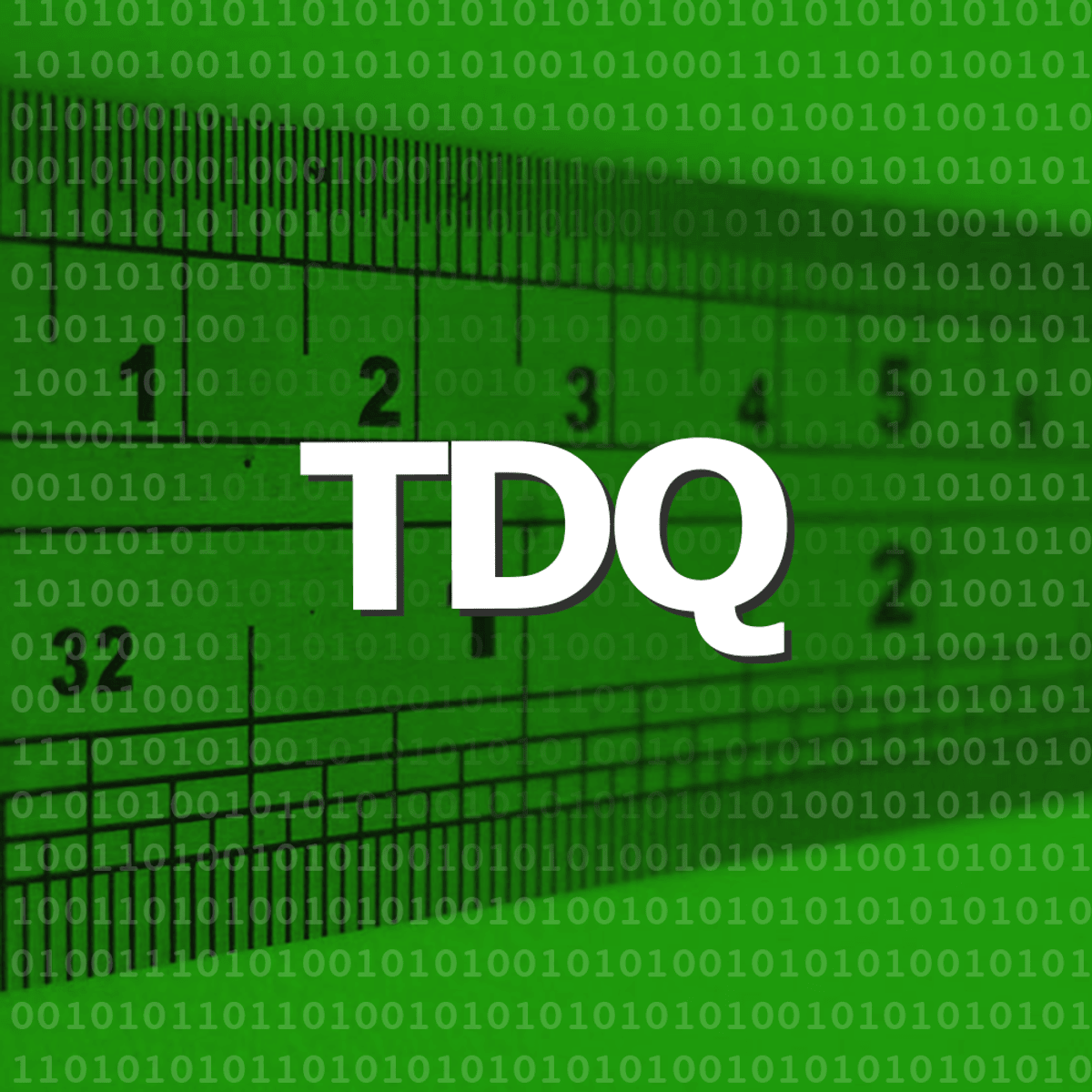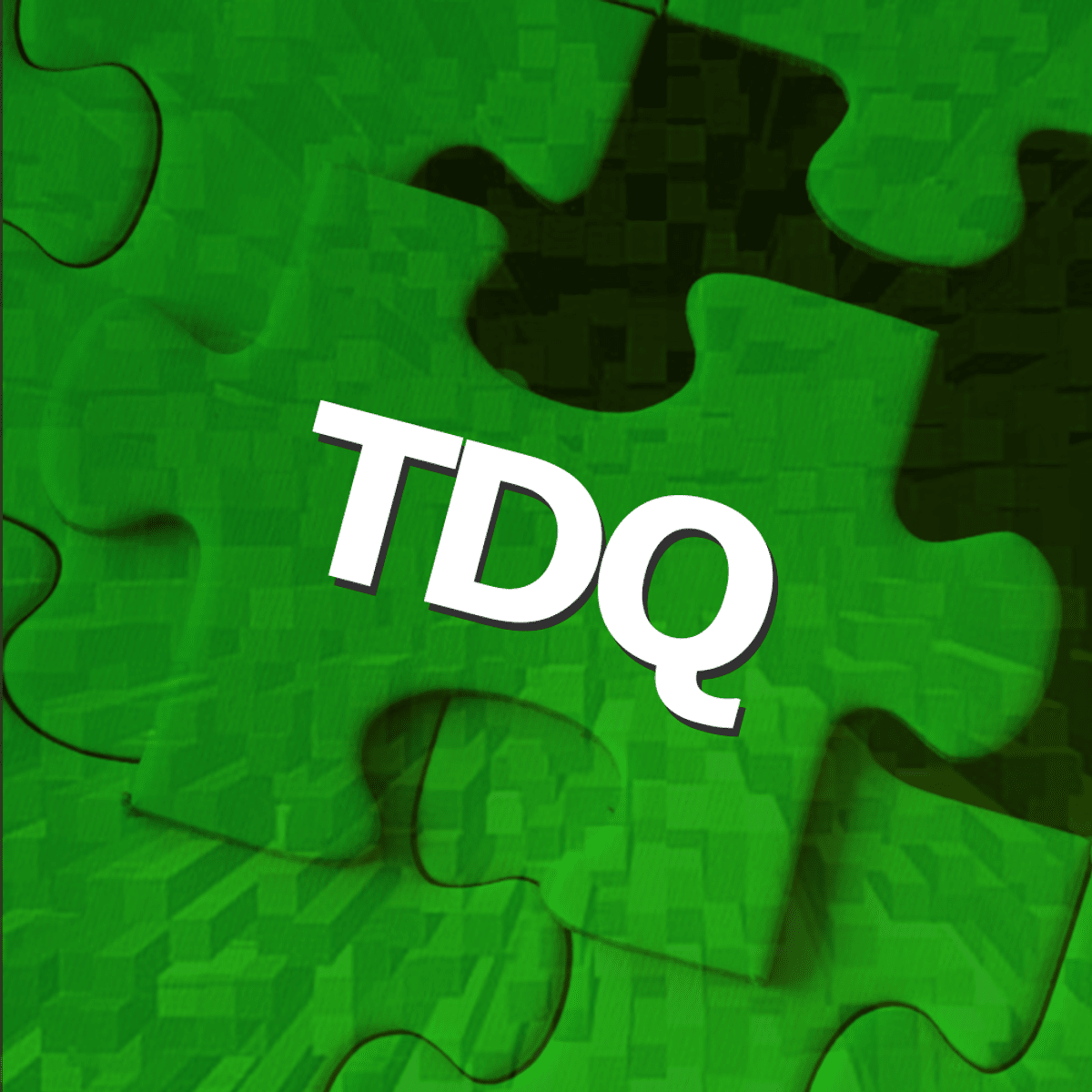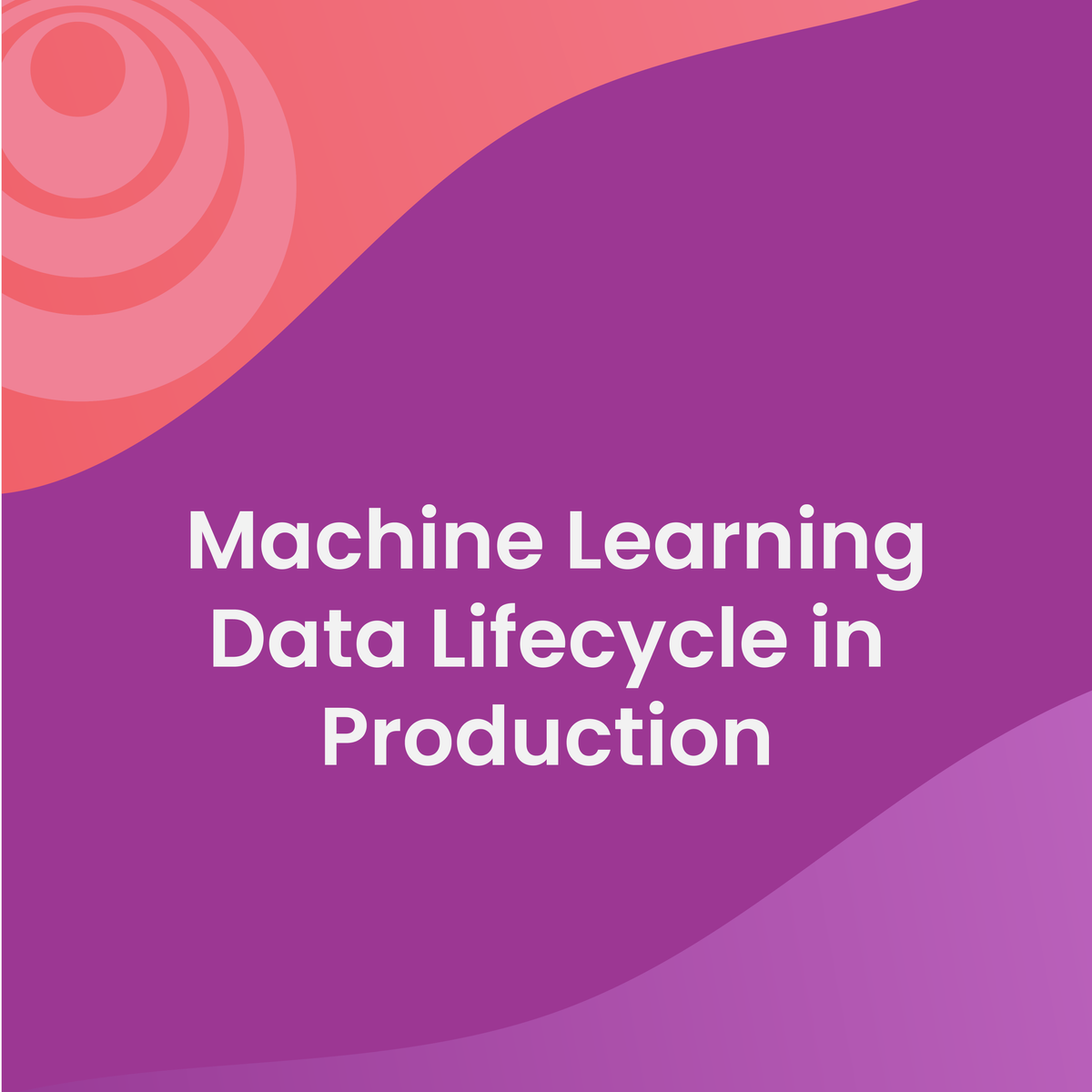Data Quality Analyst
Navigating the Nuances of Data: A Career as a Data Quality Analyst
In today's data-driven world, organizations rely heavily on information to make sound decisions, streamline operations, and gain a competitive edge. At the heart of this reliance is the integrity of the data itself. A Data Quality Analyst plays a pivotal role in ensuring that an organization's data is accurate, consistent, complete, and reliable. This career involves meticulous examination, cleansing, and validation of datasets to uphold standards and support business objectives.
Working as a Data Quality Analyst can be engaging for individuals who enjoy problem-solving and have a keen eye for detail. The role often involves investigating data anomalies, much like a detective, to uncover root causes and implement corrective actions. Furthermore, Data Quality Analysts collaborate with various stakeholders across an organization, offering a dynamic work environment and the opportunity to make a tangible impact on business outcomes. The ability to transform raw, potentially flawed data into a trustworthy asset is a key and rewarding aspect of this profession.
Key Responsibilities of a Data Quality Analyst
The day-to-day life of a Data Quality Analyst is multifaceted, involving a range of tasks aimed at maintaining and improving the health of an organization's data assets. These professionals are crucial in ensuring that the data used for reporting and analysis is dependable, as inaccurate data can lead to flawed conclusions and poor business strategies.
Data Validation and Cleansing Processes
A core responsibility of a Data Quality Analyst is the implementation and execution of data validation and cleansing processes. This involves meticulously examining datasets to identify inaccuracies, inconsistencies, missing information, or irrelevant data. They employ various techniques to correct these errors, ensuring the data meets predefined quality standards and business rules.
Data profiling is a common technique used, which involves analyzing the structure, content, and patterns within data to uncover potential issues. Once problems are identified, data cleansing activities are performed. This might include correcting erroneous entries, removing duplicate records, or enriching incomplete data by sourcing missing information. The ultimate goal is to create an error-free dataset that is fit for its intended analytical or operational purpose.
These processes are not just about fixing existing errors but also about preventing future ones. Analysts often contribute to the development of data entry protocols and validation rules that help maintain data quality from the point of creation. OpenCourser offers a variety of resources for learners interested in data validation and cleansing. For those looking to explore relevant courses, the Data Science category page is a great starting point.
Collaboration with Data Engineers and Stakeholders
Data Quality Analysts rarely work in isolation. Effective collaboration with data engineers, business users, and other stakeholders is essential for success. They often work closely with data engineers to understand data pipelines, identify sources of data quality issues, and implement technical solutions. This partnership ensures that data quality considerations are embedded throughout the data lifecycle.
Communicating findings and recommendations to various stakeholders is another critical aspect of the role. This might involve presenting data quality reports to management, explaining technical issues to non-technical audiences, or working with business users to understand their data requirements and the impact of data quality on their operations. Strong interpersonal and communication skills are therefore highly valued.
Building relationships across departments is key, especially when investigating the root causes of data issues, which may sometimes involve sensitive discussions about existing processes or user practices.
Development of Data Quality Metrics and KPIs
To systematically track and improve data quality, analysts are responsible for developing and monitoring data quality metrics and Key Performance Indicators (KPIs). These metrics provide a quantifiable way to assess the state of data quality over time, identify trends, and measure the effectiveness of improvement initiatives.
Examples of common data quality dimensions that are measured include accuracy, completeness, consistency, timeliness, and validity. Analysts define specific metrics for each relevant dimension based on business needs and data characteristics. They then establish dashboards and reports to communicate these metrics to stakeholders, enabling data-driven decisions about data quality improvement efforts.
Regular monitoring through these KPIs helps in the early detection of emerging data quality problems, allowing for prompt corrective action. This proactive approach is crucial for maintaining a high level of trust in the organization's data.
For individuals looking to deepen their understanding of data quality measurement and frameworks, the following courses provide valuable insights.
Technical Skills and Tools
A Data Quality Analyst needs a blend of technical proficiency and familiarity with specific tools to effectively perform their duties. These skills enable them to access, analyze, clean, and manage data efficiently.
Proficiency in SQL and Data Querying Tools
Structured Query Language (SQL) is a fundamental skill for Data Quality Analysts. It is used to interact with relational databases, allowing analysts to retrieve, filter, aggregate, and manipulate data for quality assessment. The ability to write efficient SQL queries is crucial for extracting specific datasets, identifying anomalies, and performing complex data validation checks.
Beyond SQL, familiarity with various data querying tools and database management systems is also important. These tools provide interfaces for interacting with databases and executing queries. Understanding database structures and data modeling concepts further enhances an analyst's ability to navigate and understand the data they are working with.
Many online courses are available to build or strengthen SQL skills. These courses are designed to equip learners with practical querying capabilities.
Experience with ETL Processes and Tools
Extract, Transform, Load (ETL) processes are central to moving and integrating data from various sources into target systems like data warehouses. Data Quality Analysts often work with ETL pipelines, as these are critical junctures where data quality issues can arise or be addressed. Understanding ETL concepts helps analysts identify potential data quality risks during data integration and transformation.
Experience with ETL tools such as Informatica, Talend, or AWS Glue is highly beneficial. These tools are used to design, execute, and monitor ETL workflows. Familiarity with them allows analysts to understand how data is being processed and to contribute to building data quality checks directly into these pipelines.
For those new to ETL or looking to gain hands-on experience with specific tools, several online courses offer comprehensive training.
Familiarity with Data Governance Frameworks
Data governance encompasses the policies, standards, processes, and controls that ensure data is managed as a valuable organizational asset. Data Quality Analysts operate within this broader framework, and understanding its principles is essential. Data governance provides the context and authority for data quality initiatives.
Knowledge of data governance frameworks helps analysts understand roles and responsibilities related to data, data lifecycle management, and compliance requirements. It also aids in establishing and enforcing data quality standards across the organization. Familiarity with concepts like master data management (MDM) and metadata management is also part of this.
Formal Education Pathways
While practical experience and skills are paramount, a solid educational foundation can provide a strong starting point for a career as a Data Quality Analyst. Various academic routes can equip individuals with the necessary knowledge and analytical capabilities.
Relevant Undergraduate Degrees
A bachelor's degree is often a typical requirement for entry-level positions in data quality analysis. Degrees in fields such as Computer Science, Statistics, Information Management, Mathematics, or Data Analytics are particularly relevant. These programs usually provide a good grounding in data analysis techniques, database management, programming, and statistical principles – all of which are valuable for a Data Quality Analyst.
Coursework focusing on data modeling, database design, and data mining can be especially beneficial. Even degrees in fields like business, finance, or economics can be applicable, particularly if they include a quantitative focus and data analysis components. The key is to develop strong analytical and problem-solving skills, regardless of the specific major.
Individuals exploring undergraduate options can find a wide range of relevant programs on platforms like OpenCourser, which aggregates courses from various institutions. The Computer Science and Mathematics sections are excellent places to start looking for foundational courses.
Graduate Programs with Data Specialization
For those seeking more advanced roles or deeper specialization, a graduate degree can be advantageous. Master's programs in Data Science, Business Analytics, Data Analytics, or Information Systems often include specialized coursework in data quality management, data governance, and advanced data analysis techniques. These programs can provide a more in-depth understanding of the complexities involved in managing large and diverse datasets.
A master's degree might also offer opportunities for research or capstone projects focused on real-world data quality challenges, providing valuable practical experience. Some universities even offer specific concentrations or certificates in data quality or data governance as part of their graduate offerings.
Advanced degrees can be particularly helpful for those aiming for leadership positions in data management or governance later in their careers.
To explore advanced topics in data, consider these courses and books which delve into data modeling and warehousing.
Certifications (e.g., CDMP, DAMA)
Professional certifications can enhance credibility and demonstrate a commitment to the field of data management and quality. The Certified Data Management Professional (CDMP), offered by DAMA International, is a globally recognized credential that covers a broad range of data management disciplines, including data quality. Achieving CDMP certification validates an individual's knowledge and expertise in these areas.
Other certifications, such as those offered by software vendors like SAS or Informatica, can demonstrate proficiency with specific data quality tools and technologies. The Information Quality Certified Professional (IQCP) from the International Association for Information and Data Quality (IAIDQ) is another relevant certification. While certifications are not always mandatory, they can be a valuable asset, especially for those transitioning into the field or seeking career advancement.
These certifications often require a combination of work experience and passing an examination, signaling a level of practical competence. Consider exploring resources like the following to prepare for such certifications and deepen your understanding of data management principles.
Online Learning and Skill Acquisition
The rise of online learning has made acquiring skills for a Data Quality Analyst career more accessible than ever. For career changers and self-learners, online platforms offer flexible and often affordable pathways to develop the necessary competencies. This route can be particularly appealing as it allows individuals to learn at their own pace and often balance studies with existing commitments.
Online courses are highly suitable for building a foundational understanding of data quality principles, SQL, ETL processes, and data governance. Many platforms provide courses that range from introductory to advanced levels, catering to diverse learning needs. Furthermore, online learning can effectively supplement existing education, allowing students to gain specialized knowledge or practical skills not covered in their formal programs. For professionals already working in data-related fields, online courses offer a convenient way to upskill, learn new tools, or prepare for certifications, thereby enhancing their current work performance and future career prospects.
Platforms Offering Data Quality Courses
Numerous online learning platforms provide a wealth of courses relevant to data quality analysis. OpenCourser itself is a comprehensive catalog that helps learners find and compare courses from various providers. These platforms host courses covering everything from foundational data literacy and SQL programming to specialized topics like data warehousing, ETL tools (such as Informatica and Talend), and data governance frameworks.
When selecting courses, it's beneficial to look for those that include hands-on exercises, real-world case studies, and opportunities to work with popular data quality tools. Some courses are part of larger specializations or professional certificate programs, offering a more structured learning path. The flexibility of online learning allows individuals to tailor their education to their specific career goals and learning preferences. You can explore a vast library of courses using OpenCourser's search functionality to find options that best fit your needs.
Here are some courses that introduce fundamental concepts in data management and quality, available on various platforms.
Project-Based Learning Strategies
Simply completing online courses is often not enough; applying the learned concepts through projects is crucial for skill development and retention. Project-based learning allows aspiring Data Quality Analysts to gain practical experience in tackling real-world data quality challenges. This could involve sourcing public datasets, identifying quality issues, applying cleansing techniques, and documenting the process and outcomes.
Projects can range from simple data cleaning exercises to more complex endeavors like developing a data quality assessment report for a dataset or even attempting to build a small ETL pipeline with embedded quality checks. These projects serve as excellent portfolio pieces that can be showcased to potential employers, demonstrating practical abilities beyond theoretical knowledge. Many online courses incorporate projects into their curriculum, but learners can also devise their own projects based on their interests.
Consider seeking out datasets from repositories like Data.gov or Google Dataset Search to find data for your projects. The key is to simulate the tasks a Data Quality Analyst would perform in a professional setting.
Integration with Open-Source Tools for Practical Experience
Gaining hands-on experience with relevant tools is vital, and open-source software provides an accessible way to do this. Many powerful data quality, ETL, and database tools are available as open-source options. For instance, aspiring analysts can practice SQL with databases like PostgreSQL or MySQL. For ETL tasks, tools like Apache NiFi or some functionalities of Talend Open Studio can be explored.
Programming languages like Python, with its rich ecosystem of libraries such as Pandas for data manipulation and various data quality libraries, are invaluable for data quality tasks. Engaging with these tools by working on personal projects or contributing to open-source projects can significantly enhance practical skills. This hands-on experience is highly valued by employers and complements theoretical knowledge gained from courses.
Many online tutorials and communities are dedicated to these open-source tools, providing ample resources for learning and troubleshooting. Utilizing these tools can help bridge the gap between academic learning and industry practice. Several courses focus on these practical tools.
Career Progression and Salary Trends
A career as a Data Quality Analyst offers a clear path for growth and development, with opportunities to take on increasing responsibility and specialize in various aspects of data management. Salaries can vary based on experience, location, industry, and the size of the organization.
Entry-Level to Senior Roles
The career trajectory for a Data Quality Analyst typically begins with entry-level positions, which might also be titled Junior Data Analyst, Data Technician, or similar roles. In these initial stages, responsibilities often focus on executing data cleaning tasks, performing basic data validation, running predefined data quality checks, and generating reports.
With a few years of experience, analysts can progress to mid-level Data Quality Analyst or Senior Data Quality Analyst roles. At this stage, they may take on more complex projects, contribute to the design of data quality rules and processes, mentor junior analysts, and have more direct interaction with stakeholders to understand requirements and resolve issues. They might also start specializing in particular data domains or industries.
Further advancement can lead to positions like Lead Data Quality Analyst, Data Steward, or Data Quality Manager. These roles often involve overseeing data quality initiatives, managing teams, developing data quality strategies, and playing a more significant role in data governance efforts. Some may also transition into related roles such as Data Governance Analyst or even Chief Data Officer (CDO) at very senior levels.
Salary Ranges Across Industries and Geographies
Salaries for Data Quality Analysts can vary significantly based on several factors. Experience level is a primary determinant, with entry-level positions commanding lower salaries than senior roles. Geographical location also plays a major role, with salaries tending to be higher in metropolitan areas with a higher cost of living and greater demand for data professionals.
The industry and size of the company can also influence compensation. For example, industries like finance, healthcare, and technology, which heavily rely on high-quality data and often have stringent regulatory requirements, may offer more competitive salaries. Large enterprises with complex data environments might also provide higher pay scales compared to smaller businesses.
According to some sources, the job market outlook for Data Quality Analysts is strong, with projected annual growth. Educational qualifications and professional certifications can also positively impact earning potential. It is advisable to research salary benchmarks in your specific region and industry using resources like online salary aggregators or industry reports, such as those that might be found on the U.S. Bureau of Labor Statistics or reputable job boards.
Leadership Opportunities in Data Governance
Experienced Data Quality Analysts are well-positioned to move into leadership roles within the broader field of data governance. Data governance is a strategic function that establishes the overall framework for how an organization manages its data assets, and data quality is a critical component of this framework. Professionals with a strong background in data quality possess a deep understanding of data issues, data lifecycle management, and the importance of data standards – all of which are vital for effective data governance.
Leadership roles in data governance can include Data Governance Manager, Director of Data Governance, or even Chief Data Officer (CDO) in some organizations. These positions involve developing and implementing data governance policies, defining data standards, ensuring regulatory compliance, and promoting a data-driven culture. They require strong leadership, strategic thinking, and the ability to influence and collaborate with senior executives and various business units.
The transition into data governance leadership often represents a significant step up in terms of responsibility and impact, allowing individuals to shape how an entire organization leverages its data. For those interested in exploring this path further, the OpenCourser Management category offers courses on leadership and strategic planning.
Ethical Considerations in Data Quality
Beyond the technical and operational aspects, Data Quality Analysts must also be keenly aware of the ethical implications associated with data. Ensuring data quality is not just about accuracy for business purposes; it's also about fairness, transparency, and respecting individual rights.
Bias Detection in Datasets
Datasets can inadvertently reflect or even amplify existing societal biases. If data used for decision-making is biased, it can lead to unfair or discriminatory outcomes, particularly in applications like AI and machine learning. Data Quality Analysts have a role to play in identifying potential biases within datasets. This involves critically examining data collection methods, data definitions, and data distributions to uncover systematic skews.
For example, if historical data reflects past discriminatory practices, using that data without addressing the bias can perpetuate those practices in automated decision systems. Detecting bias requires not only technical skills but also a critical and ethical mindset. While completely eliminating bias can be challenging, acknowledging its potential and actively working to mitigate it is a crucial ethical responsibility.
Organizations are increasingly recognizing the importance of fairness in data practices. As a Data Quality Analyst, contributing to these efforts is becoming an integral part of the role. Exploring topics within Social Sciences can provide a broader understanding of societal biases.
Regulatory Compliance (GDPR, CCPA)
Numerous regulations worldwide govern the collection, storage, processing, and protection of personal data. Examples include the General Data Protection Regulation (GDPR) in Europe and the California Consumer Privacy Act (CCPA) in the United States. Maintaining high data quality is essential for complying with these regulations.
These laws often mandate that personal data be accurate, up-to-date, and processed fairly and transparently. Data Quality Analysts contribute to compliance efforts by ensuring that data meets these accuracy and integrity standards. They may also be involved in processes related to data subject rights, such as requests for data correction or deletion, which rely on knowing what data exists and ensuring its quality.
Failure to comply with these regulations can result in significant financial penalties and reputational damage. Therefore, understanding the relevant legal and regulatory landscape is becoming increasingly important for Data Quality Analysts, especially those working with sensitive or personal information. Companies like Exterro offer solutions and resources related to data privacy and compliance.
Transparency in Data Reporting
Ethical data practices also demand transparency in how data is collected, analyzed, and reported. Stakeholders, whether they are internal decision-makers or external parties, should have a clear understanding of the data's sources, its limitations, and any quality issues that might affect its interpretation. Data Quality Analysts play a role in promoting this transparency.
This involves clearly documenting data quality assessments, including any known issues, biases, or uncertainties. When presenting data or reports, it's important to communicate not just the findings but also the confidence level in those findings based on the underlying data quality. This honesty builds trust and allows users to make more informed judgments.
Hiding or downplaying data quality problems can lead to misguided decisions and erode trust in data-driven processes. Upholding transparency is a cornerstone of ethical data stewardship.
Industry-Specific Applications
The role and focus of a Data Quality Analyst can vary significantly depending on the industry. Different sectors have unique data types, regulatory environments, and business challenges that shape data quality priorities.
Healthcare Data Standardization
In the healthcare industry, data quality is paramount for patient safety, effective treatment, regulatory compliance (such as HIPAA in the U.S.), and medical research. Data Quality Analysts in healthcare focus on ensuring the accuracy, completeness, and consistency of patient records, clinical trial data, and administrative data. A key challenge is the standardization of medical terminologies, coding systems (like ICD-10 or SNOMED CT), and data exchange formats to ensure interoperability between different healthcare systems.
Errors in healthcare data can have severe consequences, from misdiagnosis and incorrect treatment to billing errors and compromised patient privacy. Analysts in this field work on validating patient identifiers, ensuring the accuracy of diagnostic codes, and maintaining the integrity of electronic health records (EHRs). They might also be involved in quality checks for data submitted to regulatory bodies or used in public health reporting.
The Health & Medicine category on OpenCourser features courses that delve into healthcare informatics and data management.
Financial Data Validation Challenges
The financial services industry relies heavily on accurate and timely data for trading, risk management, regulatory reporting (e.g., Basel III, Dodd-Frank), fraud detection, and customer relationship management. Data Quality Analysts in finance face challenges such as ensuring the accuracy of market data, transaction records, customer identification information (KYC - Know Your Customer), and financial reporting data.
The sheer volume and velocity of financial data, coupled with the complexity of financial instruments and global operations, make data quality a significant undertaking. Errors can lead to substantial financial losses, regulatory penalties, and damage to an institution's reputation. Analysts in this sector work on validating data against complex business rules, reconciling data from multiple systems, and ensuring compliance with stringent data governance and reporting standards.
For those interested in the intersection of data and finance, courses in the Finance & Economics section of OpenCourser can provide relevant context.
Retail Customer Data Management
In the retail sector, high-quality customer data is crucial for understanding customer behavior, personalizing marketing efforts, managing inventory, optimizing supply chains, and enhancing the overall customer experience. Data Quality Analysts in retail focus on maintaining accurate customer profiles, transaction histories, product information, and loyalty program data.
Challenges include managing data from multiple channels (e.g., online, in-store, mobile apps), dealing with data decay (e.g., changes in customer addresses or preferences), and ensuring data consistency across various platforms. Inaccurate customer data can lead to ineffective marketing campaigns, poor customer service, and lost sales opportunities.
Analysts in this field work on customer data integration, deduplication, address validation, and preference management. They also play a role in ensuring compliance with consumer data privacy regulations. The Marketing category page on OpenCourser lists courses relevant to customer data and analytics.
Future Trends in Data Quality Management
The field of data quality management is continually evolving, driven by technological advancements and the increasing strategic importance of data. Staying abreast of these trends is crucial for Data Quality Analysts looking to remain effective and advance their careers.
AI-Driven Data Cleansing Tools
Artificial Intelligence (AI) and Machine Learning (ML) are increasingly being applied to automate and enhance data quality processes. AI-driven data cleansing tools can learn patterns from historical data to identify and correct errors, inconsistencies, and duplicates with greater speed and accuracy than manual methods. These tools can handle large, complex datasets more efficiently, freeing up analysts to focus on more strategic tasks.
Machine learning algorithms can also assist in data profiling, anomaly detection, and even predicting potential data quality issues before they escalate. As AI technology matures, its role in data quality management is expected to grow significantly, making familiarity with AI concepts and tools increasingly valuable for Data Quality Analysts. The concept of augmented data quality, where AI assists human experts, is gaining traction.
Real-Time Data Validation Systems
There is a growing demand for real-time data validation, especially in operational systems and streaming data environments. Instead of batch processing for data quality checks, organizations are looking for ways to validate data as it is created or ingested. Real-time data validation systems help prevent errors from entering systems in the first place, reducing the need for extensive downstream cleanup.
These systems often leverage streaming technologies and rules engines to assess data quality on the fly. Data Quality Analysts may be involved in designing the validation rules for these systems and monitoring their effectiveness. The shift towards real-time processing requires analysts to understand data streaming concepts and tools capable of handling high-velocity data.
Blockchain for Data Provenance
Blockchain technology, known for its immutable and transparent ledger capabilities, is emerging as a potential tool for enhancing data provenance and integrity. Data provenance refers to the documented history of data, including its origin, transformations, and movements. By recording metadata about data assets on a blockchain, organizations can create a verifiable and auditable trail of data lineage. [9d56ox]
This can increase trust in data by providing a transparent record of its history, making it easier to trace errors back to their source or verify data authenticity. While the adoption of blockchain for general data quality management is still in its early stages, its potential to improve data traceability and trustworthiness is significant, particularly in regulated industries or complex data sharing ecosystems.
Frequently Asked Questions (Career Focus)
Embarking on a career as a Data Quality Analyst, or considering a transition into the field, naturally brings up several practical questions. Addressing these common queries can help individuals make more informed decisions about this career path.
What are typical entry-level salary ranges?
Entry-level salaries for Data Quality Analysts can vary widely based on factors such as geographic location, the industry, the size and type of the company, and the candidate's educational background and any relevant internships or prior experience. Generally, areas with a higher cost of living and stronger demand for data professionals tend to offer higher starting salaries.
It's advisable to research current salary data for your specific region using online resources like salary comparison websites, professional networking sites, and job boards. Some industry reports may also provide salary benchmarks. Remember that initial salary is just one aspect; consider the overall compensation package, benefits, and opportunities for growth and learning when evaluating an offer.
Gaining certifications or possessing in-demand skills like advanced SQL or experience with specific ETL tools can sometimes positively influence starting salary negotiations.
What are career transition paths from non-technical fields?
Transitioning into a Data Quality Analyst role from a non-technical field is achievable, though it requires a focused effort to acquire the necessary skills and knowledge. Individuals from backgrounds such as customer service, administration, or even humanities can leverage their existing skills, such as attention to detail, problem-solving, and communication, which are also valuable in data quality.
The key is to supplement these with technical competencies. This typically involves learning SQL, understanding database concepts, gaining familiarity with data analysis tools (like Excel for a start, then moving to more specialized software), and grasping the fundamentals of data quality and data governance. Online courses, bootcamps, and self-study are excellent ways to build these technical skills. Creating a portfolio of projects demonstrating these new skills is also crucial for showcasing capabilities to potential employers. Networking with professionals in the field can also provide valuable insights and opportunities.
It might be helpful to start with an entry-level data-related role, perhaps as a data entry specialist or a junior analyst in a specific business domain you're familiar with, and then progressively move towards a more specialized Data Quality Analyst position. Patience and a commitment to continuous learning are important during this transition.
OpenCourser's Learner's Guide offers articles that can help individuals structure their self-learning journey and make the most of online educational resources.
What are the most valuable certifications for advancement?
Several certifications can add value to a Data Quality Analyst's profile and support career advancement. The Certified Data Management Professional (CDMP) offered by DAMA International is widely recognized and respected in the data management community. It demonstrates a broad understanding of data management principles, including data quality, data governance, data modeling, and more.
Another valuable certification is the Information Quality Certified Professional (IQCP) from the International Association for Information and Data Quality (IAIDQ), which specifically focuses on data quality. Vendor-specific certifications, such as those from Informatica, SAS, or Microsoft (e.g., related to Azure data services), can also be beneficial if you work extensively with those particular tools or platforms.
While certifications alone don't guarantee advancement, they can demonstrate a commitment to professional development, validate your skills, and make your resume stand out. Combining certifications with practical experience and a strong track record of delivering results is the most effective strategy for career progression.
Are there remote work opportunities in this field?
Yes, there are often remote work opportunities for Data Quality Analysts. The nature of the work, which heavily involves working with data and digital tools, lends itself well to remote arrangements. Many companies, especially in the technology sector or those with distributed teams, are open to hiring Data Quality Analysts for remote or hybrid roles.
The availability of remote positions can depend on the company's culture, the specific requirements of the role (e.g., if it requires frequent on-site collaboration with specific teams), and data security considerations. Job boards and company career pages often specify whether a position is remote, hybrid, or on-site. Building strong communication and self-management skills is particularly important for success in a remote Data Quality Analyst role.
The trend towards remote work has been accelerating in recent years, and it's likely that opportunities for remote Data Quality Analysts will continue to be available. Platforms like Jobicy often list remote-specific roles.
Which industry sectors have the highest demand?
Demand for Data Quality Analysts is strong across various industries, as nearly all sectors are increasingly reliant on data for their operations and strategic decision-making. However, some sectors typically exhibit particularly high demand due to the critical nature of their data, regulatory pressures, or the sheer volume of data they handle.
Industries such as Finance, Healthcare, Insurance, and Technology consistently seek Data Quality Analysts. In Finance, accurate data is crucial for risk management, compliance, and customer transactions. Healthcare requires high data quality for patient care, regulatory reporting, and research. The Technology sector, with its vast data generation and innovative data-driven products, also has a significant need for these professionals. Retail and e-commerce also heavily rely on data quality for customer analytics and supply chain management.
Government agencies and consulting firms that serve these industries also hire Data Quality Analysts. The specific skills and domain knowledge required can vary by sector. For instance, a Data Quality Analyst in healthcare might need familiarity with medical coding systems, while one in finance might need to understand financial regulations.
What are the essential soft skills for success?
While technical skills are crucial, soft skills are equally important for a successful career as a Data Quality Analyst. Strong analytical thinking and problem-solving abilities are fundamental, as the role involves dissecting complex data issues and devising effective solutions.
Attention to detail is paramount, as even minor data errors can have significant consequences. Excellent communication skills (both written and verbal) are necessary for explaining technical findings to non-technical audiences, collaborating with team members, and documenting processes.
Curiosity and a desire to understand the 'why' behind data issues can drive more effective root cause analysis. Good time management and organizational skills help in managing multiple tasks and meeting deadlines. Finally, collaboration and teamwork skills are essential for working effectively with data engineers, business users, and other stakeholders.
Developing these soft skills alongside technical expertise will significantly enhance a Data Quality Analyst's effectiveness and career prospects. Many resources for developing soft skills can be found in the Personal Development and Communication Studies sections on OpenCourser.
The journey to becoming a Data Quality Analyst is one of continuous learning and adaptation. It's a field that offers intellectual challenges and the satisfaction of making a tangible impact on an organization's success. By ensuring data is accurate, reliable, and fit for purpose, Data Quality Analysts serve as crucial guardians of one of the most valuable assets in the modern world: information. For those with a meticulous mind, a penchant for problem-solving, and a commitment to excellence, this career path can be both rewarding and fulfilling.






























